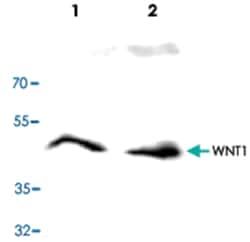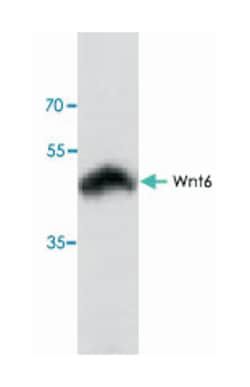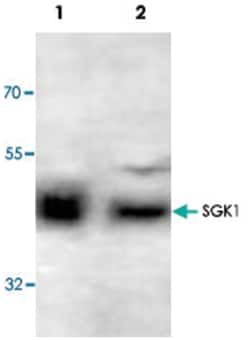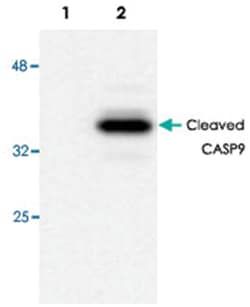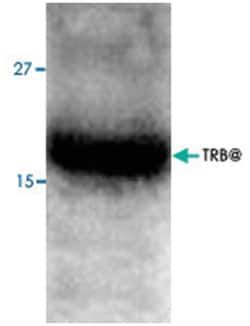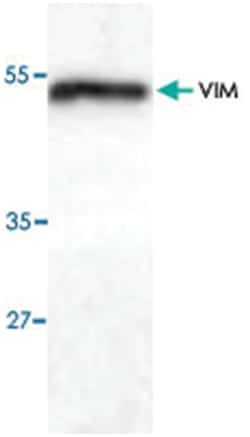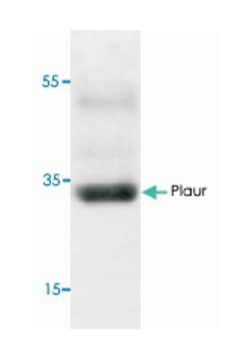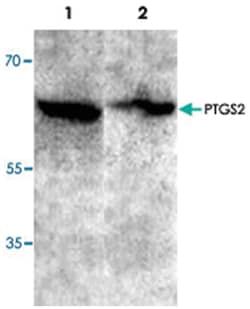PARP1 Rabbit anti-Human, Polyclonal Antibody, Abnova™
Manufacturer: Abnova Corporation
Select a Size
| Pack Size | SKU | Availability | Price |
|---|---|---|---|
| Each of 1 | 89-134-229-Each-of-1 | In Stock | ₹ 1,04,575.00 |
89-134-229 - Each of 1
In Stock
Quantity
1
Base Price: ₹ 1,04,575.00
GST (18%): ₹ 18,823.50
Total Price: ₹ 1,23,398.50
Antigen
PARP1
Classification
Polyclonal
Description
Rabbit polyclonal antibody raised against synthetic peptide of PARP1.
Formulation
In PBS (50% glycerol, 1.0% BSA, 0.02% thimerosal)
Gene Alias
ADPRT/ADPRT1/PARP/PARP-1/PPOL/pADPRT-1
Host Species
Rabbit
Quantity
100 μg
Primary or Secondary
Primary
Test Specificity
This antibody recognizes only the large fragment of PARP (89 KDa) and does not react with the full length PARP.
Content And Storage
Store at -20°C. For long term storage store at -80°C.Aliquot to avoid repeated freezing and thawing.
Applications
Immunocytochemistry, Western Blot
Conjugate
Unconjugated
Dilution
Western Blot (0.5-4 ug/mL) Immunocytochemistry (10-20 ug/mL) The optimal working dilution should be determined by the end user.
Gene
PARP1
Gene Symbols
PARP1
Immunogen
A synthetic peptide corresponding to N-terminus of human PARP1.
Regulatory Status
RUO
Gene ID (Entrez)
142
Target Species
Human
Form
Liquid
Description
- Description This gene encodes a chromatin-associated enzyme, poly(ADP-ribosyl)transferase, which modifies various nuclear proteins by poly(ADP-ribosyl)ation
- The modification is dependent on DNA and is involved in the regulation of various important cellular processes such as differentiation, proliferation, and tumor transformation and also in the regulation of the molecular events involved in the recovery of cell from DNA damage
- In addition, this enzyme may be the site of mutation in Fanconi anemia, and may participate in the pathophysiology of type I diabetes
- [provided by RefSeq

